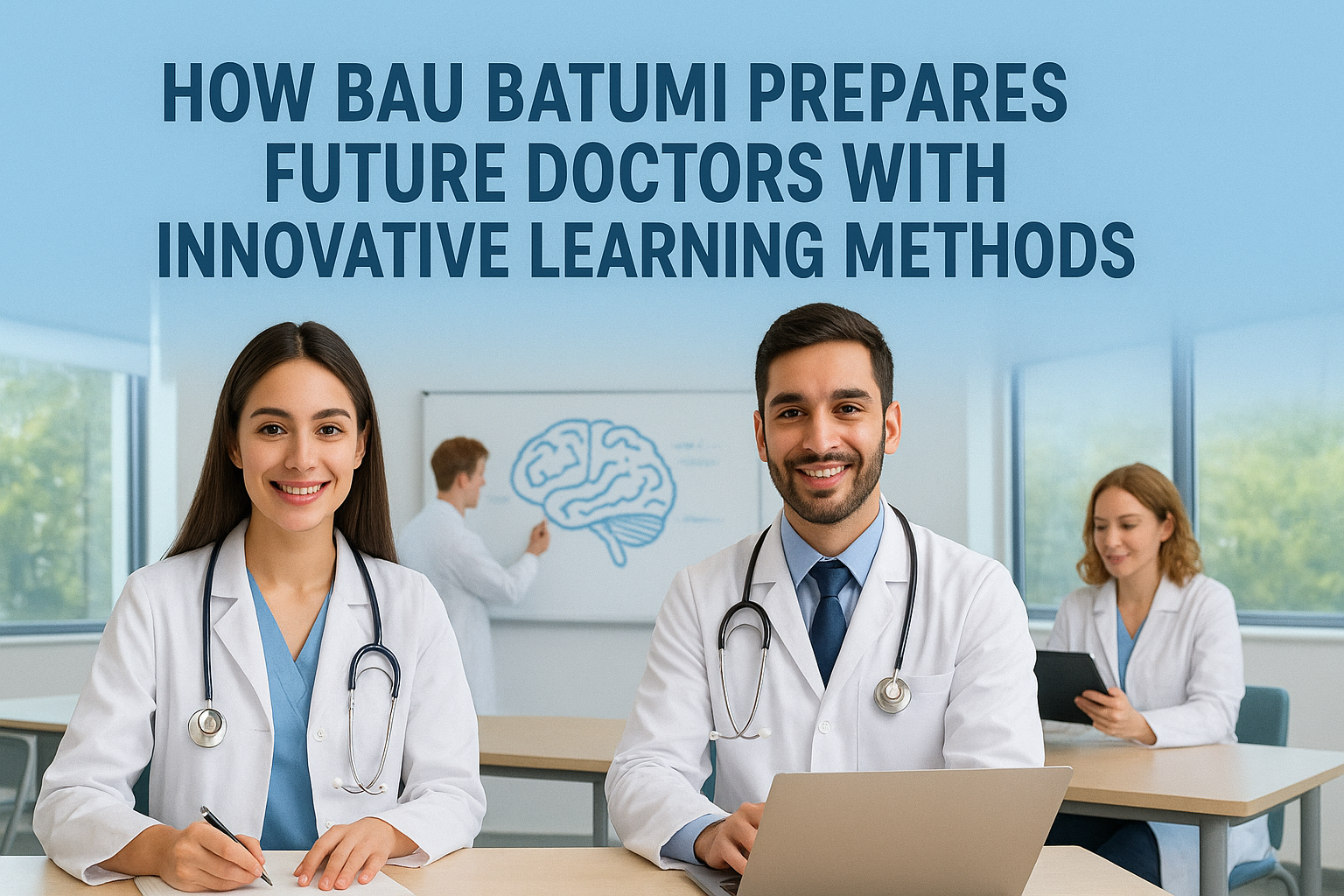To keep up with the needs of healthcare around the world, medical education is changing very quickly. Models that relied on memorization by rote and delaying clinical contact are being replaced by ones that are more dynamic, hands-on, and technology-based. Being open to this change, BAU International Batumi has built creativity into its Doctor of Medicine program. The result is a program that teaches students not only a lot about medicine, but also how to think critically, make decisions, and adjust to changes in the field.
Early Clinical Exposure: Learning by Doing
Early practical training is a big part of BAU Batumi’s program, which makes it stand out. As early as the first year, students go beyond what they learn in the classes and work with real patients. At the modern teaching hospital at the university, they practice dissections, talk to virtual patients, and do clinical exams. This strategy swiftly verifies theoretical knowledge with real-world experience. Students are comfortable in clinical settings and know how to aid patients by the end of their course.
Simulation-Based Training for Safe Skill Development
BAU uses cutting-edge modeling technologies to help students get ready for high-stress medical situations without putting real patients at risk. In state-of-the-art labs, students experience real-life medical situations, from simple exams to major problems. In a safe, controlled setting, these simulations let students make choices, practice processes, and improve their communication skills. Being able to do these tasks over and over and think about them helps students feel more confident and improves their clinical judgment long before they go to real hospitals.
Integrating Technology into the Classroom
BAU Batumi is no longer just giving lessons. Digital learning, smart classrooms, and interactive technologies are vital to students. Access to global medical resources, case-based discussions, and multimedia tools make learning exciting and current. Students can study evidence-based medicine and follow new clinical standards and international research trends. By combining technology and education in this way, BAU stays on top of the best ways to teach medicine today.
Research-Oriented Learning Culture
Innovation at BAU isn’t just found in clinical work; it’s also found in study. Student curiosity for science is promoted early on. Working with teachers, attending academic conferences, or coming up with their own study ideas helps students explore, analyze, and add to medical knowledge. This culture of interest produces doctors who are skilled at their jobs and innovative thinkers who can improve healthcare.
International Perspective and Multicultural Training
Healthcare is global now, and BAU teaches its students to think globally. In the classroom, students from over 25 countries learn to work together and share cultures. Group projects and chats introduce diverse perspectives, making learning fun. Graduates can treat patients and work with other cultures. They can work in global healthcare systems.
Bridging the Gap Between Theory and Practice
One of the best things about BAU’s new approach is that it makes it easier to put what you’ve learned into practice. Students don’t just learn “what” diseases are; they also learn “how” to spot, identify, and treat them. Problem-based learning, case studies, and working with real patients make the connection between what you learn in school and what you do in the clinic very clear. This unified method makes graduates who are not only informed but also flexible and ready for work.
Conclusion: Innovation as the Foundation of Success
Innovative thinking is important to BAU International University, Batumi’s medical school. The university provides early clinical experience, simulation training, technology-enabled classrooms, and a strong study culture to prepare students for modern healthcare. BAU’s method makes it easy for future doctors to do well anywhere in the world by offering international diversity, mentorship, and global recognition. By using new ways to teach its students, BAU Batumi is not only teaching medicine, it is also changing the way doctors of the future are trained.


